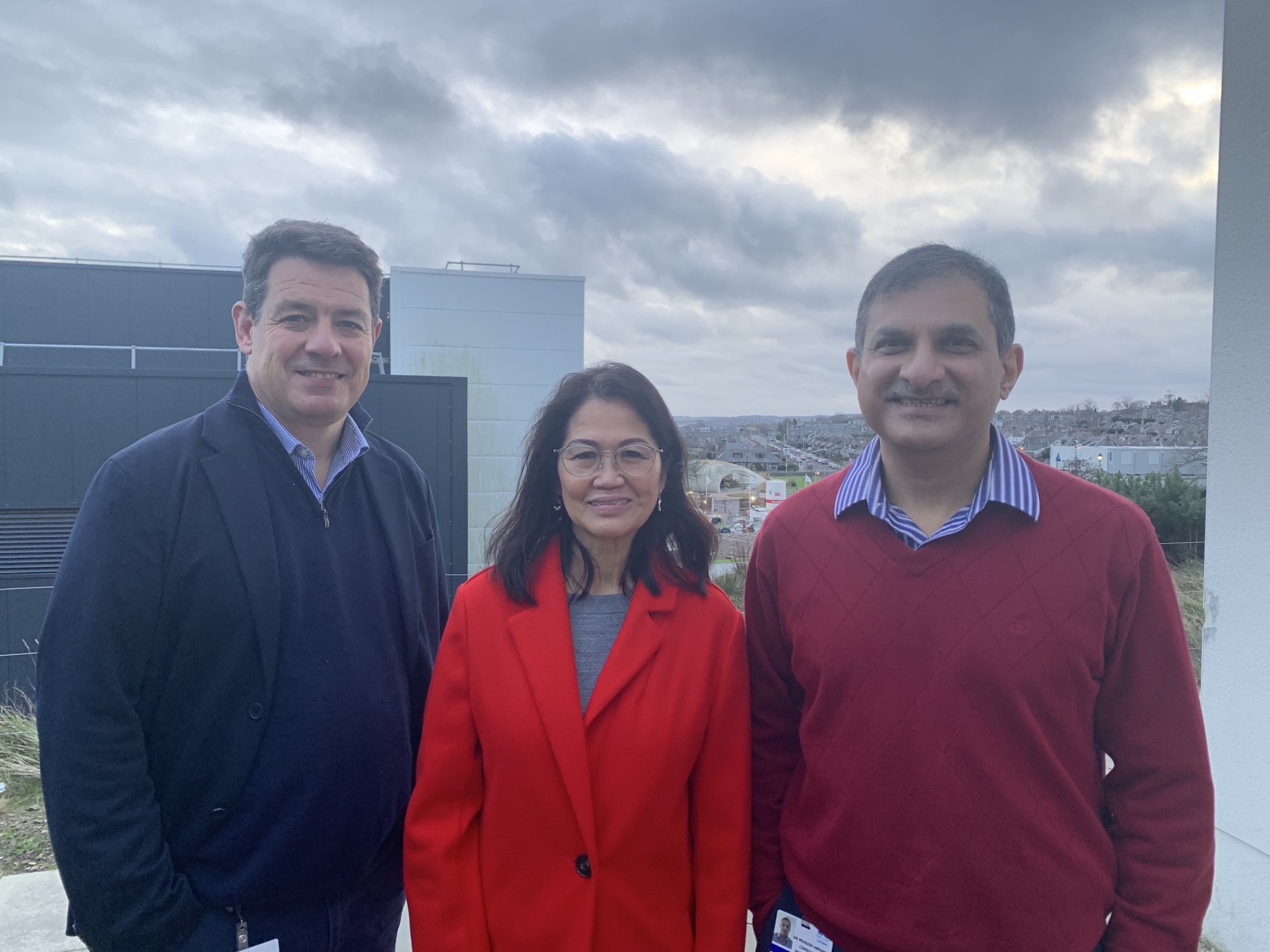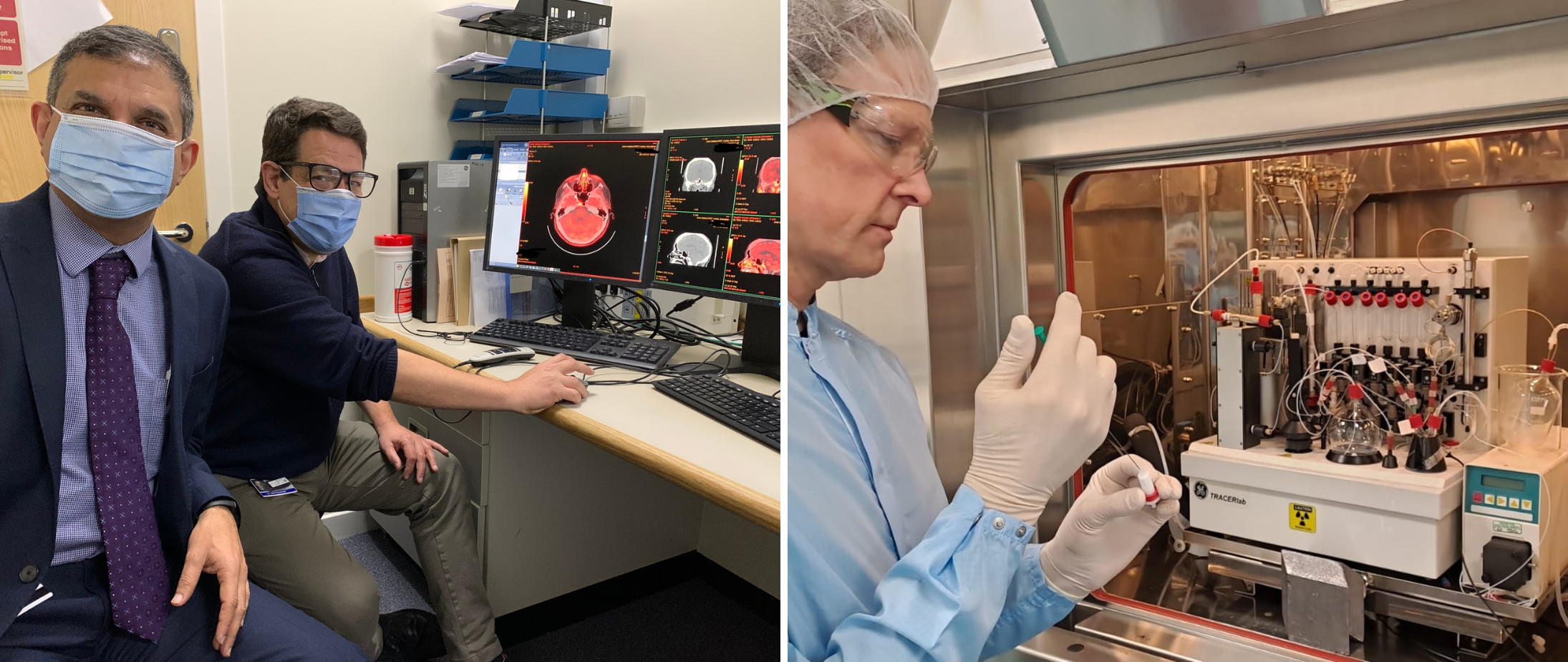Advanced brain imaging by NHS Grampian a first for Scotland
Published: 29/12/2022 15:0828 December 2022
NHS Grampian’s John Mallard PET Centre has introduced a methionine PET CT imaging service in Aberdeen which will be of huge benefit to brain tumour patients across Scotland. PET-CT stands for Positron Emission Tomography and Computerised Tomography, a scanning method which measures tissue function rather than anatomy. PET-CT helps to identify tissues that are not working normally. In Aberdeen, the technique is being used to identify pituitary disorders (adenomas which are benign tumors of epithelial tissue). It also has the potential for much broader applications.

(From left to right): Professor Staff, Mae and Dr Abraham pictured outside Aberdeen Royal Infirmary. Additional photos, audio bytes and video clips are available on request.
Clinical Scientist Professor Roger Staff explained: “NHS Grampian is pleased to be able to offer this service to people across Scotland. The Methionine PET CT service is unique in Scotland and only available at a handful of sites in the UK.” The new treatment is made possible using pharmaceuticals created in a new Grampian cyclotron, a machine which accelerates the formation of particles. Professor Staff is working alongside Consultant Endocrinologist Dr Prakash Abraham. Dr Abraham added: “The NHS methionine PET service will be transformative for patients. It is technology which is only suitable for a small number of patients at the moment but has huge potential. I have been caring for two who had a significant burden of medications, including daily and monthly injections for over a decade, who are now cured and no longer require any medication. This has had a hugely positive impact on their lives and also saves the NHS tens of thousands of pounds every year. “What the methionine scan does is help identify the area for us to target surgically. It is very accurate and we are very, very pleased with the results so far.” Mae Donald (63), whose pituitary tumour was removed thanks to the technology says she’s been given a second chance in life and in her work as a home carer. Mae explained: “I am very impressed by the NHS. I am now free from medication, free from injections, free from everything and I’m a different person now. It is amazing what they can do and I forever grateful to the doctors and nurses who have helped me. I want to give a big thank you to the teams at Aberdeen Royal Infirmary and Fyvie Oldmeldrum Medical Group. The journey with them has been amazing.” Another patient said, “I’m so thankful to have lived at a time when so much could be done for my pituitary condition. I can’t believe I’m on no medications and have normal hormone levels, twenty-three years after my diagnosis.” Professor Staff added: “We are grateful to our collaborators in Cambridge (Professor Gurnell and his team) who have provided ongoing advice. We now look forward to rolling out the service across Scotland and continuing to collaborate with our Cambridge colleagues.”

